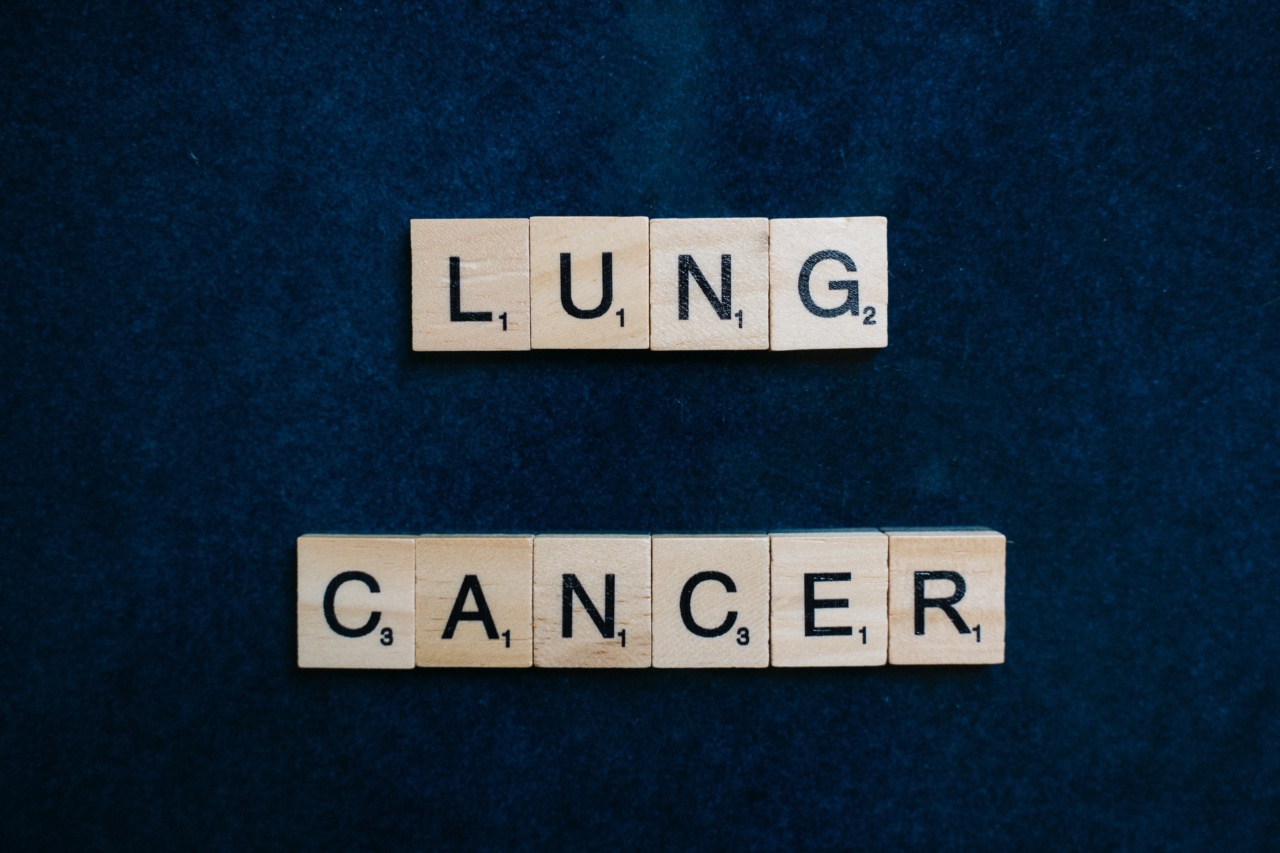Scientists have linked the duration and quality of sleep to many health outcomes, including cancer. The alarming statistics of cancer cases have piqued the interest of researchers in investigating the potential link between sleep and cancer development.
Among the various types of cancers, lung cancer is the leading cause of cancer deaths worldwide. According to the American Cancer Society, there will be over 230,000 new cases of lung cancer in the United States in 2021. In this article, we will explore the impact of sleep duration on lung cancer development.
What is Lung Cancer?
Lung cancer is a type of cancer that forms in the tissues of the lungs. There are two main types of lung cancers: non-small cell lung cancer (NSCLC) and small cell lung cancer (SCLC).
NSCLC is the most common type, accounting for about 84% of all lung cancers. SCLC, on the other hand, accounts for about 13% of lung cancers. The remaining 3% are rare types of lung cancers.
What Causes Lung Cancer?
The leading cause of lung cancer is smoking. Cigarette smoking increases the risk of lung cancer by about 15-30 times more than non-smokers.
Exposure to secondhand smoke, asbestos, radon, air pollution, and other chemicals has also been linked to lung cancer. However, recent studies have shown that sleep duration may also have an impact on the development of lung cancer.
Link Between Sleep Duration and Lung Cancer
A study conducted by the American Association for Cancer Research found that individuals who sleep less than six hours a night have a 50% higher risk of developing lung cancer compared to those who sleep for seven or more hours a night.
This finding suggests that sleep deprivation may have a significant impact on lung cancer development.
The Mechanism of Sleep Duration on Lung Cancer Development
Although the mechanism linking sleep duration to lung cancer development is not fully understood, researchers have proposed several hypotheses.
One theory suggests that poor sleep quality and sleep deprivation impair the immune system, which plays a crucial role in detecting and destroying cancer cells. Another hypothesis is that sleep loss may compromise DNA repair mechanisms, leading to an increased risk of genetic mutations, which can promote the development of cancer cells.
Other Health Effects of Sleep Deprivation
Aside from increasing the risk of lung cancer, sleep deprivation has other negative health outcomes, such as obesity, diabetes, heart disease, mood disorders, and cognitive impairment.
Chronic sleep deprivation can also weaken the immune system, making the body more susceptible to infections and illnesses.
Ways to Improve Sleep Quality
To reduce the risk of developing lung cancer, it is recommended to maintain good sleep hygiene practices. Here are some tips to improve sleep quality:.
- Stick to a regular sleep schedule
- Avoid caffeine, alcohol, and nicotine before bedtime
- Keep your sleeping environment quiet, dark, and cool
- Avoid using electronic devices such as smartphones and laptops before bed
- Exercise regularly
- Practice relaxation techniques, such as deep breathing and meditation
Conclusion
The impact of sleep duration on lung cancer development is an emerging area of cancer research.
While more studies are needed to fully understand the mechanisms linking sleep to cancer development, it is clear that sleep plays a vital role in maintaining overall health and wellbeing. Maintaining good sleep hygiene practices may help reduce the risk of developing lung cancer and other negative health outcomes associated with sleep deprivation.































